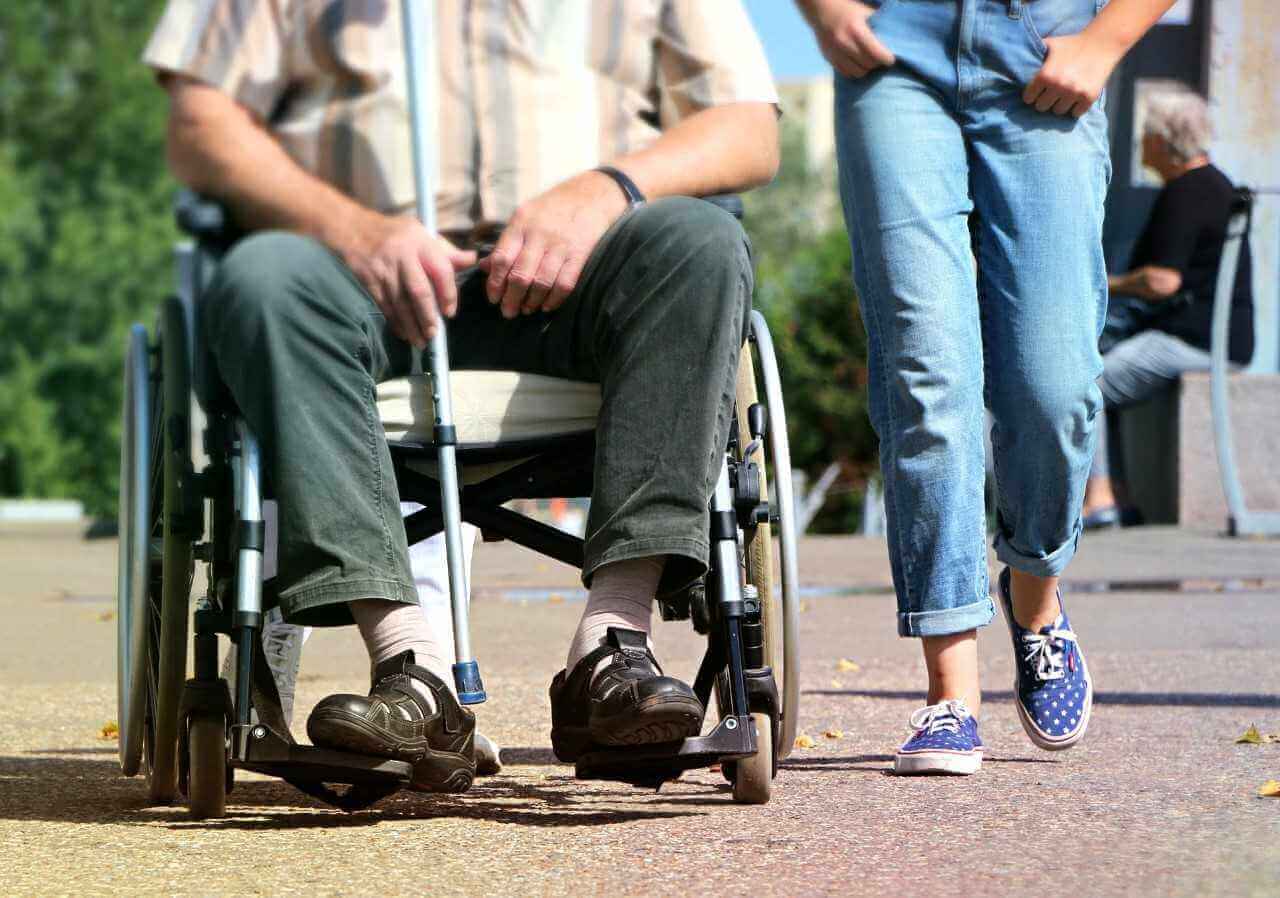Old age ain’t no place for sissies. This statement by Bette Davis, also sometimes attributed to Mae West, though, sums it up pretty well. Getting old is full of challenges and we don’t all cope with it in the same way and with the same measure of success. As a caregiver, empathizing with an elderly patient is a vital aspect in lightening the burden of aging for your patient.
Apart from an ever-increasing dose of physical age-related conditions, many people also suffer from psychological and social aging.
· Psychological aging is the change we undergo in how we perceive and react to our environment. It’s caused by changes in the brain, including cognitive decline or the manifestation of latent psychological issues.
· Social aging influences our behavior and attitude in relation to those around us. This includes, among others, changes in values, beliefs, and social engagement. Social aging also includes changes in physical and emotional functioning that set off changes in lifestyle and health.
Empathizing with an elderly patient is important in helping them maintain a positive outlook and demeanor despite the ever-mounting challenges and frustration
Whilst a caregiver can overcome some of these challenges with physical support in the form of incontinence products or mobility aids, they also need to pay attention to the way they interact with the patient. Empathy shows that they’re trying to understand the patient’s experiences, perspectives, and needs and that they’re treating them with respect and compassion. With empathy, the patient is much more likely to cooperate and take some pressure off the caregiver.
Empathy is a very broad term and there is an overwhelming array of different definitions, opinions and tips. Trying to cover everything in one article would be almost impossible, so we will focus only on the three that we consider the easiest for a caregiver to adopt in their interactions with a patient.
Stop and Listen
Listening is always important when taking care of a patient, and this is especially true for elderly patients. As people get older, they have to deal with a range of new and different health issues. These problems, especially incontinence, can leave people feeling uncomfortable or alienated. It’s important that you are there to listen to your elderly patient and take their concerns seriously.
- Listen actively - give your full attention to the patient, avoid interruptions and show that you are interested in what they have to say. If necessary, paraphrase what the patient has said and ask further questions to ensure you have understood correctly.
- Validate their feelings - acknowledge and accept their emotions, even if you do not fully understand them. Comments like “I understand how you feel” or “that must be so frustrating” show that you care and that you’re making an effort to understand.
- Put yourself in their shoes - imagine what it's like to be in their situation, this can help you better understand and relate to their experiences. Try to consider the context of their life, their goals, values, and beliefs. It can also be helpful to think about what they have experienced and how it has shaped their views and opinions.
- Show compassion and understanding - express care and concern, offer support and comfort. Make it all about the patient. Try to avoid bringing up personal difficulties. This may make the patient feel that you consider their plight insignificant.
- Respect their autonomy - allow them to make their own decisions and respect their choices. Don’t be pushy. If the patient declines help, give them a little space. If you see they’re obviously struggling, try offering again, though. Failure to help themselves is as frustrating as an unwanted offer of help.
Make Eye Contact
While it may seem simple, eye contact can make all of the difference. Making eye contact with someone shows them immediately that they have your attention. Taking the time to look up from your work, phone, or computer and make eye contact with your elderly patient is essential to show empathy.
Eye contact conveys a sense of trust and respect that may help to ease the patient’s frustration and apprehension. By maintaining eye contact during a conversation, you can also pick up on subtle cues and nonverbal body language from the patient. This may help you to understand the patient’s situation better and respond accordingly.
Body Language Matters
Body language is a form of nonverbal communication that involves visual cues such as facial expressions, body posture, gestures, eye movement, and touch to convey messages. Few people would realize that up to 93% of communication is nonverbal. Through body language, people can convey a wide range of emotions, including happiness, anger, disappointment, and confusion. It can also be used to indicate when someone is lying or trying to hide something.
A caregiver should be aware a patient’s body language at all times. Sometimes their body language may tell a very different story from what they’re saying. For example, your elderly patient may say that they are fine with their adult diapers, while they are slouching, avoiding eye contact, or making other physical cues that indicate otherwise. These nonverbal cues can be the key to fully understanding and empathizing with your patient.
It's equally important for the caregiver to be very conscious of the body language that they’re transmitting. With age comes experience and wisdom. If your actions belie what you’re saying, you may upset the patient and lose their trust and cooperation.
Take time to do some research on body language. There are many resources available with very credible information. Try mindtools.com or verywellmind.com for comprehensive explanations in easy-to-understand language and graphics.
Conclusion
Showing empathy to your elderly patient can make all the difference to their health. Slowing down to listen, making eye contact, and paying attention to body language are all simple but essential tips on how to empathize with your patient.
At LL Medico, we know how difficult it can be for elderly patients dealing with health issues like incontinence, as well as for their caregivers. We try to make your life easier by offering a large selection of essential incontinence products and other healthcare products. Visit LLMedico.com to explore our selection today. Alternatively, you can call us at (855) 422-4556 or email us at support@llmedico.com.






 855-422-4556
855-422-4556 Chat
Chat E-Mail
E-Mail Monday - Friday 9:00AM to 5:00PM EST
Monday - Friday 9:00AM to 5:00PM EST





 Shopping With LL Medico
Shopping With LL Medico
 855-422-4556
855-422-4556